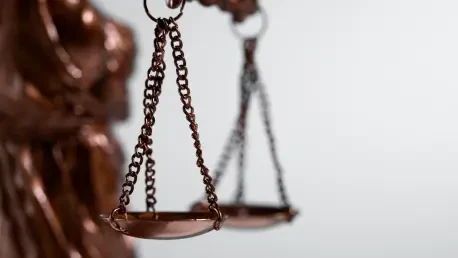The Justice Department, under the leadership of U.S. Attorney General Pam Bondi, has made a significant decision to end the American Bar Association’s privileged role in evaluating federal judicial nominees. This move disrupts a 72-year practice where the ABA’s Standing Committee functioned as an independent evaluator, ensuring nominees to the federal judiciary were qualified, ethical, and capable. The shift by the Justice Department raises concerns among legal professionals and institutions alike. The longstanding tradition of involving the ABA in the vetting process aimed to maintain transparency and accountability, qualities now questioned due to restricted access to nominees. As a result, some members of the legal community fear a potential decline in the integrity of the judicial appointment process and express apprehension about how this decision could impact the quality and impartiality of future judges.
Concerns Over Transparency in the Judicial Appointment Process
William R. Bay, President of the ABA, has voiced disappointment and concern about this decision in a formal letter addressing General Bondi. Bay warned of the consequences of restricting access to judicial nominees, which limits the information available to the ABA Standing Committee and hinders its ability to perform thorough evaluations. This move represents a departure from tradition, prompting discussions around essential themes such as transparency and accountability in the judicial appointment process. Essential to this discourse is the understanding that the ABA’s historically independent evaluations play a critical role in upholding the standards and integrity of the judiciary. Incorporated within this dialogue are voices expressing dismay, such as Greenwald Law Offices, which are noted for their strong advocacy for justice and equality. They argue this change could undermine a system designed to ensure qualified individuals ascend to the federal bench. The sentiment reflects a broader consensus that values transparency in public institutions, urging a reevaluation of the policy to maintain a robust judicial system.
Implications for Judicial Integrity and Independent Evaluations
One central theme emerging from this policy shift is apprehension among legal bodies and professionals about its implications. Concerns have been raised about the potential effects on the quality and impartiality of judges, considering the historical significance of the ABA’s role. The removal of the ABA’s independent evaluations could lead to questions about the standard of future appointments, as these evaluations have traditionally provided crucial insights to support effective vetting processes. Without an independent entity overseeing the evaluations, the integrity of the judicial appointment process may face challenges, further stirring worry in the legal community about potential biases that could emerge without external oversight. The consensus indicates the ABA’s evaluations contribute significantly to upholding key standards, ensuring nominees are scrutinized impartially and objectively, elements vital to sustaining public trust in the judiciary.
Moving Forward: Reconciling and Maintaining Standards
William R. Bay, President of the American Bar Association (ABA), expressed disappointment regarding the decision to limit access to judicial nominees in a letter to General Bondi. Bay cautioned that this action could severely restrict the ABA Standing Committee’s ability to conduct comprehensive evaluations due to limited information. This change marks a notable shift away from established practices, sparking discussions on crucial themes like transparency and accountability in the judicial appointment process. At the heart of this discourse is the recognition that the ABA’s traditionally independent evaluations are vital for upholding the judiciary’s standards and integrity. Contributing to this conversation are voices like Greenwald Law Offices, known for advocating justice and equality, who argue this policy change could undermine a system meant to ensure qualified candidates advance to the federal bench. The broader consensus emphasizes the importance of transparency in public institutions, urging a policy reconsideration to sustain a strong judicial system.









